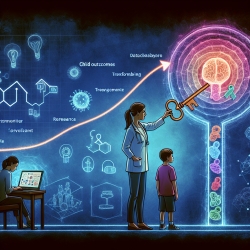Key Findings and Their Implications
The study, which spans over 30 years and includes observations of 228 patients, highlights several critical points:- Genotype-Phenotype Correlation: The research identifies various disease-associated genetic variants that lead to severe, intermediate, and mild forms of Hunter Syndrome. Understanding these correlations can help in early diagnosis and personalized treatment plans.
- Enzyme Replacement Therapy (ERT): Out of the 228 patients, 113 are currently receiving ERT. The study shows that ERT significantly improves the quality of life, especially for those with milder forms of the disease. This underscores the importance of early intervention and consistent treatment.
- Social Adaptation: Patients with milder forms of Hunter Syndrome exhibit better social adaptation and higher life expectancy. This finding emphasizes the need for comprehensive care that includes not just medical treatment but also social and psychological support.
Practical Applications for Practitioners
Based on the findings, here are some actionable steps that practitioners can take:- Early Diagnosis: Utilize genetic testing and clinical symptomatology to diagnose Hunter Syndrome as early as possible. Early intervention can significantly improve outcomes.
- Personalized Treatment Plans: Tailor treatment plans based on the genotype-phenotype correlation. This approach ensures that each patient receives the most effective treatment.
- Comprehensive Care: Incorporate social and psychological support into the treatment plan. This holistic approach can improve the overall quality of life for patients and their families.
Encouraging Further Research
While the study provides a wealth of information, it also highlights the need for further research. Specifically, understanding the impact of various genetic variants on the severity of the disease can lead to even more personalized and effective treatments.Conclusion
The long-term study of Russian patients with Hunter Syndrome offers valuable insights that can significantly enhance the skills of practitioners. By implementing these findings, we can improve the quality of life for affected children and their families.To read the original research paper, please follow this link: Analysis of long-term observations of the large group of Russian patients with Hunter syndrome (mucopolysaccharidosis type II).










